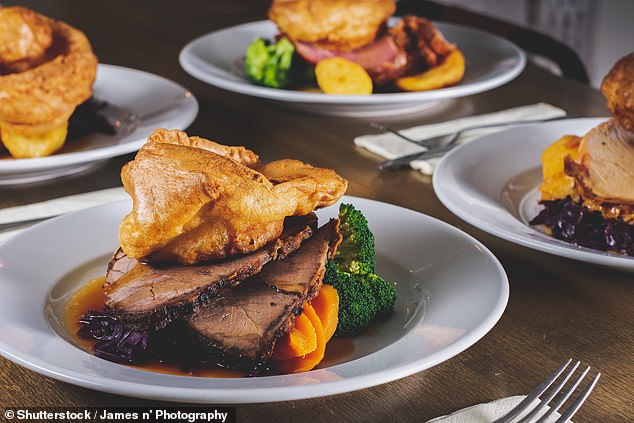Revealed: The Ultimate Winter Comfort Food — And Scientists Say It’s Even More Satisfying Than a Sunday Roast
With Britain in the middle of an Arctic blast, many of us will be trying to stay warm with a week of comfort food.
While pies, lasagna or Sunday roasts might be your first choice, scientists say another classic tops the list.
According to research from Walnut Unlimited, a bowl of soup is the ultimate comfort food.
Based on people’s brain waves, soup is as comforting as a hug from a loved one or cuddling under a cozy blanket — and even more soothing than a warm bath or curling up with a good book.
Many people reach for a bowl of steaming soup when it’s cold outside or when they have a cold, but scientists wanted to actually measure how it makes us feel.
They showed 49 people a short video to make them feel like they’d had a bad day, with things like train cancellations, traffic jams, bad weather and a dead phone battery.
The researchers then fed the volunteers soup while measuring their brain activity using 14 electrodes attached to their scalps.
The comfort perceived in the brain after people ate Heinz tomato soup was as good as a hug, the results showed.
Based on people’s brain waves, soup is as comforting as a hug from a loved one or snuggling under a cozy blanket – and even more soothing than a warm bath or curling up with a good book

While pies, lasagna or Sunday roasts may be your top choice, scientists say another classic tops the list
This was achieved by having a friend or family member hug each volunteer for six seconds and monitor the same electrical brain activity.
Showing people a video of soup, meanwhile, had a similar comforting effect as videos that helped them imagine snuggling up under a blanket, lying in bed under the covers, putting on a pair of slippers, sitting by a fire sit or take a quiet walk in nature. .
The study, commissioned by Heinz, found that watching a video showing soup was even more soothing than visualizing cuddling a pet, taking a warm bath or shower, reading a book, watching a favorite television show or sipping a mug of tea.
Scientists assessed this based on activity in the prefrontal cortex, which shows whether someone is motivated to do an activity, such as eating soup, hugging someone or lying under a blanket, rather than wanting to avoid it.
Dr. Andy Myers, a neuroscientist at research firm Walnut Unlimited, which conducted the study, said: ‘From a neurological point of view, comfort is a powerful response.
‘It’s a state of calm and ease, the brain’s natural antidote to stress and bad mood.
‘Comfort food such as soup provokes this response and creates a feeling of security and tranquility.’
Conveniently, on days when heating up soup on the stovetop seems much more appealing than preparing a meal from scratch, soup proves to be as much of a comfort food as a Sunday roast or shepherd’s pie.

On days when heating up soup on the stovetop seems far more appealing than preparing a meal from scratch, soup turned out to be as much of a comfort food as a Sunday roast or shepherd’s pie.
In addition to the Heinz tomato soup video, people were shown eight videos of other comforting foods.
Their brain responses suggest that soup is as soothing as sausage and mash or a cheese sandwich.
It’s even better than porridge, fish and chips or a warm pudding.
The study found that only Heinz tomato soup, and not another brand, produced a similar brain response to a hug.
In addition to using an EEG, researchers in the study also measured people’s sweaty palms, also known as electrodermal activity, which shows the intensity of emotions.
This is because comfort is a mild, relaxing emotion.
In a recent survey of 2,000 people in Britain, 71 percent said they believe people need more comfort today, while almost half say they crave comfort more than in the past.
Two-thirds consider food an important source of comfort, according to Opinium research, with 42 percent citing their soup as a comfort food.
